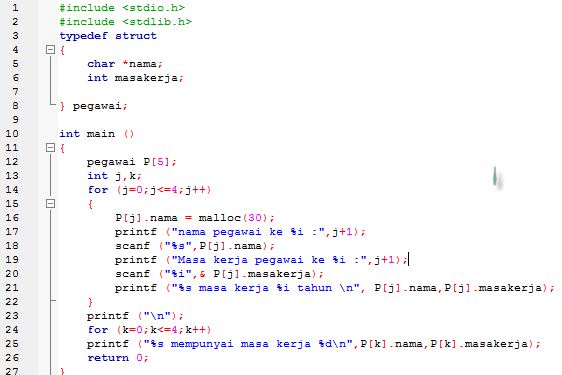
Jul 21, 2012 Pengertian, Macam - macam, dan Penggunaan Linked List dalam C Linked list adalah sekumpulan elemen bertipe sama, yang mempunyai keterurutan tertentu, yang setiap elemennya terdiri dari dua bagian Linked list juga merupakan suatu cara untuk menyimpan data dengan struktur sehingga dapat secara otomatis menciptakan suatu tempat baru untuk. Kali ini saya coba untuk membuat contoh program linked list dengan Bahasa C. Sebelumnya, mari kita bedah sedikit, apa sih linked list itu? Di laman en.wikipedia.org disebutkan sebagai berikut In computer science, a linked list is a data structure consisting of a group of nodes which together represent a sequence. Implementing Multi-Linked List. For a long program like this, you need to post all your code so we can just drop it into the compiler and run it through a debugger without all the code, we have to eyeball the code and run all these lines in our heads, which is not very pleasant you also need to include a representative chunk.
I want to know if you can help me with something. I'm creating a singly linked list to be sorted. I can change it to a doubly linked list if need to. At the moment my Bubble Sort function sorts it well, but when I try and print it out again, there's double of one number, I remember seeing this kinda problem a year ago, but I don't remember how I fixed it.Also, if you can suggest a better way to sort it, please do! Also incorporate on how I would go about writing the function as a linked list.Thanks!Here's the code.
Personally, I'd be more partial to an insertion sort, instead of a bubble sort, for a singly linked list. Basically, just linearly iterate over the original unsorted linked list, taking each node off. Then put them into a new sorted list, where you just iterate over it until you find the insertion point. Worst case scenario, your original list was already sorted, so every insertion requires traversing the new list.Insertion operations:0 + 1 + 2 + 3 +. + (n-2) + (n-1) + n (n/2).
n (n^2)/2Plus, the operations for traversing the original list: nSo, we have O( (n^2)/2 + n )Of course, we could address that by keeping a pionter to the last node in the new sorted list, and specifically checking it before iterating down the whole list. In that case, the sort would take O( 2n ) operations, which would also be the best case scenario.Also, the memory overhead is a single new root node pointer, and possibly a tail node pointer, and all of those operations are basically just pointer dereferences or pointer assignments, which are pretty cheap.
I want to know if you can help me with something. I'm creating a singly linked list to be sorted. I can change it to a doubly linked list if need to. At the moment my Bubble Sort function sorts it well, but when I try and print it out again, there's double of one number, I remember seeing this kinda problem a year ago, but I don't remember how I fixed it.Also, if you can suggest a better way to sort it, please do! Also incorporate on how I would go about writing the function as a linked list.Thanks!Here's the code. Personally, I'd be more partial to an insertion sort, instead of a bubble sort, for a singly linked list. Basically, just linearly iterate over the original unsorted linked list, taking each node off.
Linked List Operations

Then put them into a new sorted list, where you just iterate over it until you find the insertion point. Worst case scenario, your original list was already sorted, so every insertion requires traversing the new list.Insertion operations:0 + 1 + 2 + 3 +. + (n-2) + (n-1) + n (n/2). n (n^2)/2Plus, the operations for traversing the original list: nSo, we have O( (n^2)/2 + n )Of course, we could address that by keeping a pionter to the last node in the new sorted list, and specifically checking it before iterating down the whole list. In that case, the sort would take O( 2n ) operations, which would also be the best case scenario.Also, the memory overhead is a single new root node pointer, and possibly a tail node pointer, and all of those operations are basically just pointer dereferences or pointer assignments, which are pretty cheap.
